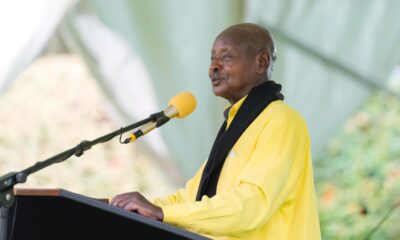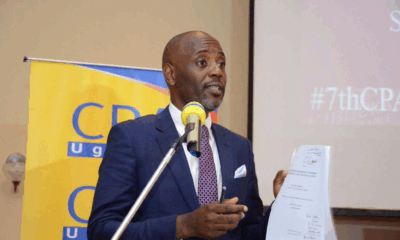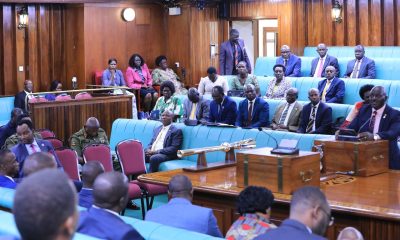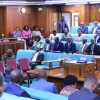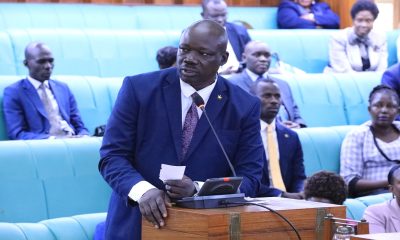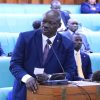Parliament
Parliament Approves Shs4.86 Trillion in Supplementary Budget to Address Urgent Needs
Parliament today passed the Supplementary Appropriation Bill, 2025, authorising the government to spend an additional Shs4.86 trillion. This substantial allocation aims to address urgent and unforeseen expenditures that arose beyond the approved budget for the Financial Year 2023/2024.
The decision was reached during a plenary session presided over by Speaker Anita Among. Hon. Remigio Achia, the Deputy Chairperson of the Committee on the Budget, presented the committee’s report to the House, explaining that these funds are crucial for expenditures that could not have been anticipated during the initial budget approval process.
Hon. Achia assured the House that the supplementary appropriation aligns with the provisions of the Constitution and the Public Finance Management Act. He clarified that the funds, which have already been spent under three supplementary schedules in the previous financial year, were now being formally regularised through this Bill. The approved funds cover both recurrent and development expenditures across various government entities.
According to the details outlined in the Bill, government ministries received a total of Shs1.39 trillion. Notable allocations include Shs396 billion for the Office of the President, Shs189 billion for State House, and Shs204 billion for the Ministry of Internal Affairs. The Ministry of Finance, Planning and Economic Development was allocated Shs88.8 billion, while the health and infrastructure sectors also received significant boosts, with the Ministry of Health getting Shs38.6 billion and the Ministry of Works and Transport receiving Shs47.3 billion. The Ministry of Gender, Labour and Social Development was allocated Shs73.3 billion, alongside other ministerial allocations.
Statutory entities and public institutions were allocated a further Shs1.21 trillion. The Science, Technology and Innovation Secretariat received the largest portion of this at Shs757 billion, followed by the National Animal Genetic Resource Centre with Shs92 billion. Key institutions such as the Uganda Bureau of Statistics (Shs 83.1 billion), the National Identity and Registration Authority (NIRA) (Shs 4.2 billion), and Makerere University (Shs 14.5 billion) also received allocations. Additionally, essential service providers like the Uganda Cancer Institute, Uganda Blood Transfusion Services, Uganda Land Commission, Uganda Industrial Research Institute, Uganda Police, Uganda Prisons, and various referral hospitals, including Arua, Masaka, and Naguru, are among the beneficiaries.
A significant sum of Shs 836.5 billion has been earmarked for embassies and missions abroad. These funds are intended to support staff salaries and cover operational expenses across Uganda’s network of over 50 foreign missions.
Local governments across the country, encompassing districts, municipalities, and cities, will receive a total of Shs 2.46 trillion. This substantial allocation is aimed at addressing wage shortfalls, facilitating conditional and unconditional grants, and ensuring effective service delivery through equalisation transfers.
Hon. Achia firmly stated that all the outlined expenditures remained within the 3 per cent legal limit of the total approved budget, as mandated by the Public Finance Management Act. He also emphasised their consistency with previous parliamentary resolutions.
“In conclusion, the Committee recommends that the Supplementary Appropriation Bill, 2025, be passed into law,” Hon. Achia urged, leading to the unanimous endorsement of the report by the House. The Act is set to take effect retroactively from 1st July 2023.
Following the Bill’s passage, Hon. Ibrahim Ssemujju (FDC, Kira Municipality) voiced a concern regarding the budgeting process, advocating for more time to be allocated to it to avoid rushing crucial financial decisions.
Comments






